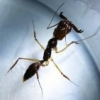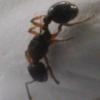Over the course of the many years that I've been actively involved in the English speaking ant keeping community (circa 2000) (if the high turnover set of often feuding members (mostly young children) of various forums run almost invariably by neurotic or otherwise deeply flawed administrators can be called a community) I have seen the same ant keeping techniques repeated over and over again by different members as though they are established ant keeping canon despite a seeming lack of evidence supporting them. With the very recent exception of some particularly dedicated members such as dspdrew and some of owners of the many ant keeping supply companies that are actively striving to turn ant keeping into a commercial "industry" as some of them have called this once casual and cheap hobby, there has been a dearth of users who were doing detailed trials of new techniques and rearing methods and most importantly posting their methods and results online. Some examples of these myths that I have seen but do not recall seeing any detailed evidence for one way or the other:
- Refrigerating workers/queens makes them more receptive/acceptable to foreign colony fragments/queens.
- Ants like darkness. Do they? Has anyone done any comparative experiments with the same species in the same conditions with controls and isolated variables? I haven't seen any. I've seen photos of lab colonies where colonies with a red square of plastic sheeting above a certain section will be where the queen is consistently found, but not any evidence that it makes the slightest difference in colony success.
- Stress kills ants. Dr. Buschinger once created a post or thread on this very subject sometime in the last ten year s on Yuku pointing out that stress is a catchall term that keepers use when their ants die for reasons that they do not understand. For a while I remember the usage of this term died down but it seems to have made a comeback.
- You should bake/boil/sterilize wild media before introducing it to your ants. There are many examples of people doing this and advocating for its usage, but I haven't seen anyone do a detailed comparison of raw and cooked media in otherwise similar conditions.
- The efficacy of Bhakter's diet--though this is (if I recall correctly) printed in the back of what is possibly the most prestigious ant book to amateur keepers, The Ants, user drtrmiller claims that during his commercial research and investigation of ant nutrition he found the diet to be completely worthless and claimed that the diet is spread in a similar fashion to the myths that I am discussing. (hopefully I paraphrased him correctly) I certainly do not remember any examples of someone going through the effort of making this diet to try it out and then posting the results.
- Do insects need to be frozen/boiled/sterilized before feeding them to captive ants? Lots of people claiming to do this and advocating for it, but no one providing results from trials where they tried this for some colonies and not for others.
I'm sure there are other myths/unsupported techniques that I do not recall but which should be on this list. I also freely admit that there could be some detailed threads providing support/opposition to these ideas in a trustworthy manner that I have not seen, and it is also quite possible that the other language based communities have answered these questions and that information has not diffused into the English speaking community. What I find most interesting about these myths is how they seem to be spread. As I see it, it's mostly the brand new users that typically don't stick around for more than one season who perpetuate these ideas. They join, read a ton of old threads, get some advice from equally new members with no experience to speak of and then in turn perpetuate this information by 'helpfully' doing the same for even newer members. Then as is usual with the high turnover of members in the ant keeping community they disappear completely leaving nothing but a few incomplete colony journals and some posts containing recommendations to use these techniques that next year's crop of new ant keepers will find to repeat the cycle. No contact with reality is required to perpetuate these ideas, only the fleeting enthusiasm of children and a laptop.
I have seen some of them like the refrigeration method since around 2004 but I have yet to see a single instance where someone performed extensive testing of it to determine its efficacy one way or the other, only anecdotal results from some random new ant keeper sloppily going about mixing queens and workers when they can barely even keep groups of a few dozen workers alive under optimal conditions. I started this thread originally intending to ask if anyone had seen evidence for it but it morphed into the text above.
I think a big part of the problem is that by and large the English speaking community is terrible at keeping colonies alive for any significant portion of their natural lifespans. How often do you see new keepers who get queens or whole colonies only to post about how they did something to meddle with their colony because they think they need attention as much as a pet dog would with the predictable result of all of their ants dying? Even with more experienced and careful adult ant keepers you see that their most successful colonies are plagued by massive population die offs, random deaths of the entire colony, termination of brood production, or more mundane things like forgetting to replenish their water supply and letting their colonies die of dehydration. How many long term journals do you see that encompass even half the natural lifespan of the same species in what you would think would be the considerably harsher conditions of the wild (other than some of the extremely short lived invasives) where the colony reaches maximum adult population size without any drastic population declines or requiring brood boosting from other colonies in the wild? It's hard to properly vet ant keeping techniques when almost nobody seems to be capable of keeping colonies alive to properly vet new techniques on them.
I will note that the only constant exception to this rule has been the participation in forums by actual Myrmecologists, though most of their knowledge that they have chosen to share has been in the domain of taxonomy rather than the formiculturist side of things as we now seem to be calling it. Their presence seems to be diminishing quite a lot as they understandably appear to have not much tolerance for the lowering of communicative rigor (among other factors I suspect) that the English speaking community has adopted in recent years.
Edited by Reacker, April 12 2017 - 6:25 PM.

























